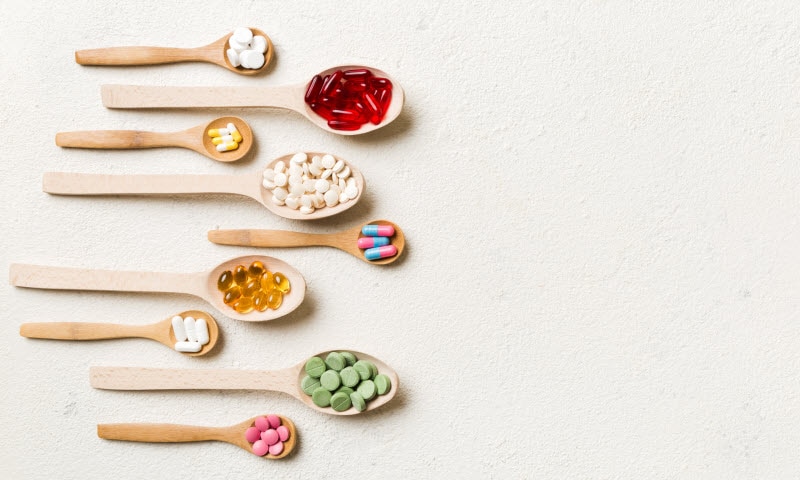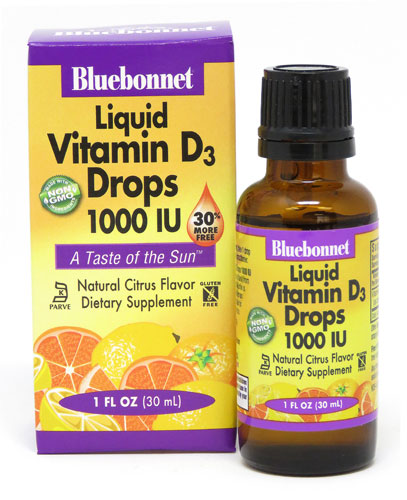[vc_row][vc_column][vc_column_text]Some types of supplements may be more effective than others. But with so many choices—including capsules, tablets, softgels, powders, liquids and gummies—how can you know you’re making the right decision? To start, it helps to understand the difference between
supplement forms.

What are the different types of supplements?
Tablets are solid pills with tightly-packed ingredients. They’re usually smaller and less expensive than other supplements; some are chewable or dissolve in the mouth.
Capsules are made up of two pieces that slide together to hold either a powdered or liquid supplement.
Softgels are single-piece soft pills made of gelatin or vegetable-based ingredients with a liquid supplement inside.
Powders are supplements sold as loose powder that can be mixed with liquid or food.
Liquids come in oil, extract and drink forms that are taken alone or mixed with other beverages.
Gummies resemble gummy candies and are usually marketed as supplements for children; some manufacturers also make supplement chews for adults.
Which supplement form is most effective?
Not all types of supplements are created equal. Gummies, for example, are considered the
least effective because they
contain lower nutrient levels and lose potency more quickly than other forms. Some minerals may also be excluded to avoid a metallic flavor.
Tablets can be formulated to dissolve right away or release nutrients slowly over time. But tablets
don’t always break apart in the digestive tract, so you may not get the full dose of nutrients. Powders present a similar problem if they don’t dissolve completely when mixed with liquid and part of the dose settles to the bottom as sediment.
Capsule absorption may be better than tablets, but capsules hold a smaller amount of supplement per pill. While this doesn’t impact effectiveness, you have to take more pills to get the recommended dose, which could mean spending more on supplements.
Liquids are easier to take and
absorb more quickly, which can be helpful for people with compromised digestion or who don’t like to swallow pills. Since they’re less stable than pills, these supplements may lose potency and become less effective over time. Both liquids and powders allow for more customized dosing and make it possible to take high doses of specific supplements when needed.
What about natural vs. synthetic supplements?
Whether or not supplements are produced from food doesn’t appear to affect
how well your body absorbs and uses them—in most cases. Synthetic supplement forms are often identical to the forms found in food; even supplements with a “natural” label may contain
up to 90% of these “natural-identical” synthetics. However, some synthetic nutrients have different shapes than those you get from food, and it’s still unclear if this affects the way they work.
Whole food, food-based and food-cultured supplements are often marketed as more effective alternatives to synthetics, but
there isn’t enough scientific evidence to support these claims. Since recommended daily supplement intakes are
based on synthetic nutrients, it can be hard to know if you’re getting the right amount of nutrients from supplements in a whole-food form.
What can interfere with supplement effectiveness?
When choosing effective supplements, though, form may not be as important as ingredients.
The FDA doesn’t evaluate dietary supplements before a formula goes to market. Some products may not contain all the nutrients listed on the label, or the types of nutrients in the
supplement may not be easy for your body to absorb. Due to this, supplements from different manufacturuters but with the same form and dose may vary in effectiveness.
Some ingredients—called excipients—improve supplement effectiveness. Excipients can make pills easier to swallow and help them dissolve in the digestive tract. Excipients can also keep supplements stable to ensure that nutrients and ingredients don’t degrade during the expected shelf life.
But even with added excipients, proper supplement storage is important. Heat, light and moisture can cause
nutrients to break down or dissolve, which is why most supplement labels advise storing them in a “cool, dry place away from sunlight.” Some supplements are best stored in the refrigerator and will say “keep refrigerated” or “refrigerate after opening” on the label instead.
Supplements ingredients to avoid
Artificial preservatives and antioxidants may be added to
protect supplements and extend shelf life, but they may cause
hypersensitivity reactions like rashes, wheezing or coughing.
Colorings, flavorings and sweeteners may also be a concern. Gummies often contain all three to make the supplements more attractive and better tasting, although these ingredients may also be found in other supplement forms. Some evidence links artificial additives to
hyperactivity in children, the group most likely to take gummy supplements on a regular basis. And if you’re watching your sugar intake, be aware that gummies can contain as much as 2 teaspoons of added sugar per serving.
These ingredients aren’t known to impact supplement effectiveness, but you may wish to avoid them due to their potentially negative health effects.
Choosing the best types of supplements for you
Many other factors can affect how well you
absorb supplements. The most effective supplement for you is one that allows for maximum absorption based on your health and nutritional requirements.
If you’re not sure which type to choose, ask your doctor or a qualified nutrition professional for guidance. He or she can recommend the best form and how much to take to get the most out of your supplements.[/vc_column_text][/vc_column][/vc_row][vc_row][vc_column][vc_text_separator title="Featured Products" border_width="2"][vc_row_inner equal_height="yes" content_placement="middle" gap="35"][vc_column_inner width="1/3"][vc_single_image image="183905" img_size="full" alignment="center" onclick="custom_link" img_link_target="_blank" css=".vc_custom_1746653418751{padding-right: 7% !important;padding-left: 7% !important;}" link="https://www.vitacost.com/carlson-inflammation-balance"][/vc_column_inner][vc_column_inner width="1/3"][vc_single_image image="184295" img_size="full" alignment="center" onclick="custom_link" img_link_target="_blank" css=".vc_custom_1746653477484{padding-right: 7% !important;padding-left: 7% !important;}" link="https://www.vitacost.com/life-extension-mega-vitamin-k2"][/vc_column_inner][vc_column_inner width="1/3"][vc_single_image image="176581" img_size="full" alignment="center" onclick="custom_link" img_link_target="_blank" css=".vc_custom_1746653561775{padding-right: 7% !important;padding-left: 7% !important;}" link="https://www.vitacost.com/codeage-calcium-pro-calcium-magnesium-zinc-copper-boron-vitamin-d2-k2"][/vc_column_inner][/vc_row_inner][/vc_column][/vc_row]




